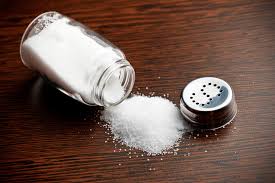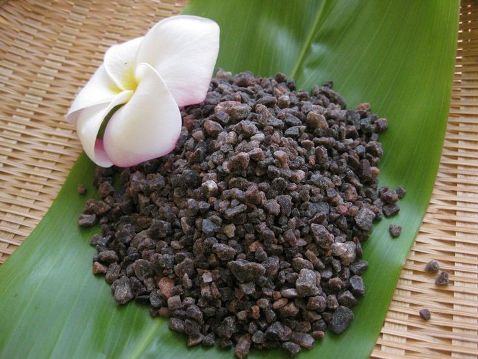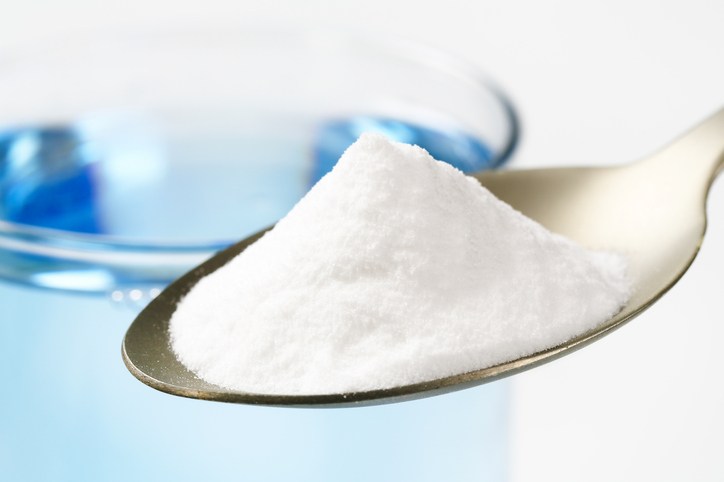Hyponatremia
Overview
Hyponatremia occurs when the concentration of sodium in your blood is abnormally low. Sodium is an electrolyte, and it helps regulate the amount of water that's in and around your cells.
In hyponatremia, one or more factors — ranging from an underlying medical condition to drinking too much water — cause the sodium in your body to become diluted. When this happens, your body's water levels rise, and your cells begin to swell. This swelling can cause many health problems, from mild to life-threatening.
Hyponatremia treatment is aimed at resolving the underlying condition. Depending on the cause of hyponatremia, you may simply need to cut back on how much you drink. In other cases of hyponatremia, you may need intravenous electrolyte solutions and medications.
Symptoms
Hyponatremia signs and symptoms may include:
Nausea and vomiting
Headache
Confusion
Loss of energy, drowsiness and fatigue
Restlessness and irritability
Muscle weakness, spasms or cramps
Seizures
Coma
When to see a doctor
Seek emergency care for anyone who develops severe signs and symptoms of hyponatremia, such as nausea and vomiting, confusion, seizures, or lost consciousness.
Call your doctor if you know you are at risk of hyponatremia and are experiencing nausea, headaches, cramping or weakness. Depending on the extent and duration of these signs and symptoms, your doctor may recommend seeking immediate medical care.
Causes
Sodium plays a key role in your body. It helps maintain normal blood pressure, supports the work of your nerves and muscles, and regulates your body's fluid balance.
A normal blood sodium level is between 135 and 145 milliequivalents per liter (mEq/L). Hyponatremia occurs when the sodium in your blood falls below 135 mEq/L.
Many possible conditions and lifestyle factors can lead to hyponatremia, including:
Certain medications. Some medications, such as some water pills (diuretics), antidepressants and pain medications, can interfere with the normal hormonal and kidney processes that keep sodium concentrations within the healthy normal range.
Heart, kidney and liver problems. Congestive heart failure and certain diseases affecting the kidneys or liver can cause fluids to accumulate in your body, which dilutes the sodium in your body, lowering the overall level.
Syndrome of inappropriate anti-diuretic hormone (SIADH). In this condition, high levels of the anti-diuretic hormone (ADH) are produced, causing your body to retain water instead of excreting it normally in your urine.
Chronic, severe vomiting or diarrhea and other causes of dehydration. This causes your body to lose electrolytes, such as sodium, and also increases ADH levels.
Drinking too much water. Drinking excessive amounts of water can cause low sodium by overwhelming the kidneys' ability to excrete water. Because you lose sodium through sweat, drinking too much water during endurance activities, such as marathons and triathlons, can also dilute the sodium content of your blood.
Hormonal changes. Adrenal gland insufficiency (Addison's disease) affects your adrenal glands' ability to produce hormones that help maintain your body's balance of sodium, potassium and water. Low levels of thyroid hormone also can cause a low blood-sodium level.
The recreational drug Ecstasy. This amphetamine increases the risk of severe and even fatal cases of hyponatremia.
Risk factors
The following factors may increase your risk of hyponatremia:
Age. Older adults may have more contributing factors for hyponatremia, including age-related changes, taking certain medications and a greater likelihood of developing a chronic disease that alters the body's sodium balance.
Certain drugs. Medications that increase your risk of hyponatremia include thiazide diuretics as well as some antidepressants and pain medications. In addition, the recreational drug Ecstasy has been linked to fatal cases of hyponatremia.
Conditions that decrease your body's water excretion. Medical conditions that may increase your risk of hyponatremia include kidney disease, syndrome of inappropriate anti-diuretic hormone (SIADH) and heart failure, among others.
Intensive physical activities. People who drink too much water while taking part in marathons, ultramarathons, triathlons and other long-distance, high-intensity activities are at an increased risk of hyponatremia.
Complications
In chronic hyponatremia, sodium levels drop gradually over 48 hours or longer — and symptoms and complications are typically more moderate.
In acute hyponatremia, sodium levels drop rapidly — resulting in potentially dangerous effects, such as rapid brain swelling, which can result in a coma and death.
Premenopausal women appear to be at the greatest risk of hyponatremia-related brain damage. This may be related to the effect of women's sex hormones on the body's ability to balance sodium levels.
Prevention
The following measures may help you prevent hyponatremia:
Treat associated conditions. Getting treatment for conditions that contribute to hyponatremia, such as adrenal gland insufficiency, can help prevent low blood sodium.
Educate yourself. If you have a medical condition that increases your risk of hyponatremia or you take diuretic medications, be aware of the signs and symptoms of low blood sodium. Always talk with your doctor about the risks of a new medication.
Take precautions during high-intensity activities. Athletes should drink only as much fluid as they lose due to sweating during a race. Thirst is generally a good guide to how much water or other fluids you need.
Consider drinking sports beverages during demanding activities. Ask your doctor about replacing water with sports beverages that contain electrolytes when participating in endurance events such as marathons, triathlons and other demanding activities.
Drink water in moderation. Drinking water is vital for your health, so make sure you drink enough fluids. But don't overdo it. Thirst and the color of your urine are usually the best indications of how much water you need. If you're not thirsty and your urine is pale yellow, you are likely getting enough water.
Consuming excess salt may cause gastro-intestinal bloating, reveals a latest study. For the study, the group of scientists re-analysed data from a large clinical trial-the Dietary Approaches to Stop Hypertension-Sodium trial (DASH-Sodium)-conducted two decades ago. Their findings revealed that high sodium intake increased bloating among trial participants.
Additionally, they also found that high-fibre DASH diet increased bloating among trial participants compared to a low-fibre control diet.
The study was published in the American Journal of Gastroenterology. "Bloating is one of the leading gastrointestinal complaints in the U.S. and can be exacerbated in some people by a high-fiber diet; our results suggest that they might be able to reduce that bloating, without compromising on healthy fiber, by lowering their sodium intake," said, study senior author Noel Mueller.
Bloating is a condition characterised by build-up of excess gas in the gut.The production of gas can be attributed to gas-producing gut bacteria breaking down fibre.
The researchers said that the study is the first to examine sodium as a cause of bloating in the context of low- and high-fibre diets.
The team analyzed data from the DASH-Sodium trial, conducted at four clinical centers during 1998-99, it tested the DASH diet, a high-fibre diet,, which is relatively low in fat and high in fruits, nuts, and vegetables, against a low-fibre control diet.
The scientists tested each of the two diets at three levels of sodium, and the 412 participants all had high blood pressure at the trial start.
The chief aim of the study was to determine the effect of dietary sodium and other factors on blood pressure. But they also included data on participants' reports of bloating that Mueller and colleagues analyzed for the new study.
The study revealed that prior to the trial, 36.7 per cent of the participants reported bloating, which is more or less in line with national surveys of bloating prevalence. They found too that the high-fibre DASH diet increased the risk of bloating by about 41 per cent, compared to the low-fibre control diet-and men were more susceptible to this effect, compared to women.
Sodium was a prevalent factor in bloating, the scientists revealed. When they combined data from the DASH and control diets and compared the highest level of sodium intake to the lowest, it was found that the high-sodium versions of those diets collectively increased the risk of bloating by about 27 per cent compared to the low-sodium versions.
The researchers said that reducing sodium can be an effective way to reduce bloating-and may even help people maintain a healthy, high-fibre diet.
Rock salt, also known as black salt, is packed with health benefits. From general health to skin and hair problems, this unprocessed and also the purest salt form is an ingredient used in many Ayurvedic medicines. Many people prefer rock salt over common salt for its nutritional significance. It is a rich source of minerals and trace elements such as copper, iron, potassium, magnesium, calcium, to name a few. The following health advantages of rock salt makes it a must have ingredient in your diet.
The black salt comes as a much needed relief for people with digestive problems, heart burns, or gas. It helps in better digestion of food in addition to making the food more palatable. People suffering from constipation can also benefit immensely from black salt.
If you are into fitness, and importantly into losing weight, the black salt is what the doctor has just advised. The black salt is known to be helpful in dealing with the hunger pangs (reduces food cravings) better.
Fluctuations in the blood pressure can be quite risky for the health. Black salt goes a long way in stabilizing the blood pressure. In fact, people with high blood pressure are often advised to use black salt.
If you are a night owl by compulsion (insomniac), then black salt is sure to make your life a lot easier. Sleep disorder often results from an imbalance in the melatonin level. Black salt normalizes the healthy sleeping cycle by regulating the melatonin level in the affected person.
Black salt comes as a real savior for people with a skin problem. Black salt helps to not only cleanse but also exfoliate (rock salt makes for an excellent natural body scrub) the skin. It removes the dead skin cells, opens the closed skin pores, thus giving the skin a natural glow. To improve the overall circulation, many people soak their body in water containing black salt.
Rock salt is known to be an excellent immune booster.
Yellow nails or cracked heels can be embarrassing. Worry no more! Just soak your hands and feet in rock salt water and watch the magic.
Taking a bath in rock salt water after a long and tiring day will leave you refreshed and rejuvenated like never before.
Rock salt is a rich source of almost all the essential trace elements. Thus, it acts as a catalyst enhancing the metabolic activities of the body.
People with a cold, tonsil or other respiratory problems (sinus, dry cough, to name a few) can benefit by gargling with lukewarm water with a pinch of rock salt in it.
Drinking rock salt water (brine, preferably spring water) is helpful in the case of kidney stones, arthritis, gall bladder stones.
Rock salt is equally beneficial for the hair. When mixed with shampoo, it helps to cleanse the hair (also removes the dead skin) naturally.
Rock salt, also known as black salt, is packed with health benefits. From general health to skin and hair problems, this unprocessed and also the purest salt form is an ingredient used in many Ayurvedic medicines. Many people prefer rock salt over common salt for its nutritional significance. It is a rich source of minerals and trace elements such as copper, iron, potassium, magnesium, calcium, to name a few. The following health advantages of rock salt makes it a must have ingredient in your diet.
The black salt comes as a much needed relief for people with digestive problems, heart burns, or gas. It helps in better digestion of food in addition to making the food more palatable. People suffering from constipation can also benefit immensely from black salt.
If you are into fitness, and importantly into losing weight, the black salt is what the doctor has just advised. The black salt is known to be helpful in dealing with the hunger pangs (reduces food cravings) better.
Fluctuations in the blood pressure can be quite risky for the health. Black salt goes a long way in stabilizing the blood pressure. In fact, people with high blood pressure are often advised to use black salt.
If you are a night owl by compulsion (insomniac), then black salt is sure to make your life a lot easier. Sleep disorder often results from an imbalance in the melatonin level. Black salt normalizes the healthy sleeping cycle by regulating the melatonin level in the affected person.
Black salt comes as a real savior for people with a skin problem. Black salt helps to not only cleanse but also exfoliate (rock salt makes for an excellent natural body scrub) the skin. It removes the dead skin cells, opens the closed skin pores, thus giving the skin a natural glow. To improve the overall circulation, many people soak their body in water containing black salt.
Rock salt is known to be an excellent immune booster.
Yellow nails or cracked heels can be embarrassing. Worry no more! Just soak your hands and feet in rock salt water and watch the magic.
Taking a bath in rock salt water after a long and tiring day will leave you refreshed and rejuvenated like never before.
Rock salt is a rich source of almost all the essential trace elements. Thus, it acts as a catalyst enhancing the metabolic activities of the body.
People with a cold, tonsil or other respiratory problems (sinus, dry cough, to name a few) can benefit by gargling with lukewarm water with a pinch of rock salt in it.
Drinking rock salt water (brine, preferably spring water) is helpful in the case of kidney stones, arthritis, gall bladder stones.
Rock salt is equally beneficial for the hair. When mixed with shampoo, it helps to cleanse the hair (also removes the dead skin) naturally.
Diuretics are substances that allow the body to get rid of excess water and sodium. They help in draining out the water by stimulating the kidneys and eliminate sodium from the urine thus, facilitating drainage of excess water. Diuretics are prescribed by the doctor when the body starts to retain excessive fluids.
The conditions that lead to problems such as:
1. High blood pressure: This is a disorder wherein the blood exerts more than the normal force (pressure) against the arterial walls while flowing through them.
2. Diabetes: It is a metabolic disorder wherein the blood sugar level rises significantly.
3. Kidney stones: Kidney stones refer to the formation of stones in the kidneys that can hamper the normal functioning of the kidney, leading to fluid retention in the body.
4. Edema: A disorder wherein parts of the body tend to swell due to inflammation is called ‘edema’.
5. Impaired functioning of the kidney: Impaired functioning of the kidneys makes it very difficult to flush out the excess sodium from the body thus, leading to fluid retention.
There are certain natural diuretics, which can come to your aid in times such as these. Read on to know more:
1. Parsley: Parsley, a very effective diuretic, is an herb that is commonly used for garnishing. It can also help in relieving bladder problems.
2. Black and green tea: Both green and black variants of the humble tea are very effective diuretics; you can enjoy them after a heavy meal to get rid of the bloating.
3. Hawthorn: A type of natural diuretic that is effective in reducing fluid accumulation and increasing urinary excretion. It also helps in treating problems of the kidney.
4. Juniper: A diuretic that has been used since ancient times. Juniper is very effective in removing excess salt and fluids from the body. The advantage of this plant is that it does not lower downs the level of potassium in the body, a side effect of other diuretics.













